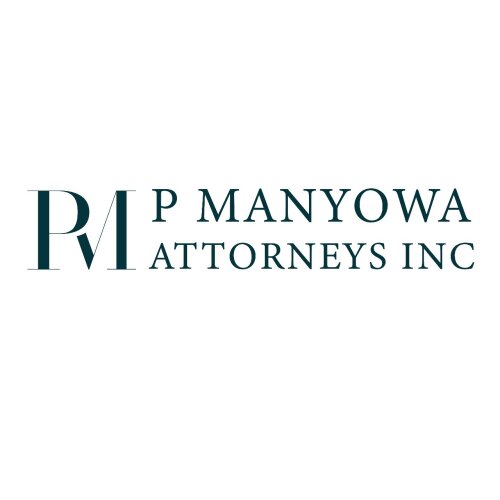Best Trusts Lawyers in Polokwane
Share your needs with us, get contacted by law firms.
Free. Takes 2 min.
List of the best lawyers in Polokwane, South Africa
About Trusts Law in Polokwane, South Africa
Trusts in Polokwane, South Africa, are a legal arrangement where assets are transferred by a Trustor (or Settlor) to trustees for the benefit of beneficiaries. Polokwane, as part of South Africa, follows national laws regarding Trusts, which are primarily governed by the Trust Property Control Act No. 57 of 1988. Trusts can serve various purposes such as estate planning, asset protection, and charitable activities. They offer a mechanism to manage and distribute assets consistently with the Trustor's wishes while providing benefits to the intended recipients.
Why You May Need a Lawyer
There are several scenarios where you may require legal advice regarding Trusts in Polokwane:
- Creation of a Trust: Establishing a Trust involves navigating complex legal requirements, ensuring the documentation meets all current regulatory standards.
- Management of Trusts: Trustees may need guidance on fulfilling their fiduciary duties effectively under South African law.
- Disputes and Litigation: Conflicts can arise between trustees and beneficiaries or among beneficiaries themselves. Legal intervention may be necessary to resolve these disputes.
- Estate Planning: Trusts are vital tools in estate planning, helping manage and position assets for future generations efficiently.
- Tax Planning: Proper understanding and adaptation of Trusts can significantly influence tax obligations. Legal experts help to structure Trusts to optimize tax liabilities.
Local Laws Overview
Trusts in Polokwane are governed by the same legal framework applicable throughout South Africa. The key legislation includes:
- The Trust Property Control Act No. 57 of 1988: This act provides the guidelines on the control and administration of Trust property, including trustee duties, powers, and liabilities.
- Income Tax Act No. 58 of 1962: This act includes provisions on how Trusts are taxed in South Africa, impacting both income generated within the Trust and distributions made to beneficiaries.
- Common Law Principles: South African Trust law also incorporates principles derived from English common law.
Frequently Asked Questions
What is a Trust?
A Trust is a legal entity established to manage assets. It involves a Trustor transferring assets to trustees to hold for the benefit of beneficiaries.
Why should I consider setting up a Trust?
Setting up a Trust can provide significant advantages, such as estate planning, asset protection, and tax optimization. It ensures your assets are managed according to your wishes and can provide for your beneficiaries.
How do I choose a trustee?
Choose a trustee who is trustworthy, reliable, and knowledgeable about financial and legal responsibilities. Trustees can be individuals or corporate entities.
Are Trusts taxable in South Africa?
Yes, Trusts in South Africa are subject to taxation, and the income generated by the Trust is taxed in accordance with the Income Tax Act.
Can a Trust be changed or revoked?
The ability to amend or revoke a Trust depends on its type. An inter vivos Trust can often be amended or revoked, whereas a testamentary Trust usually comes into effect on death and cannot be altered thereafter without a court order.
What is the difference between a living Trust and a testamentary Trust?
A living Trust (inter vivos trust) is established during the Trustor's lifetime, while a testamentary Trust is created as per the instructions within a will, and comes into effect upon death.
How long does a Trust last?
The duration of a Trust can vary. Some are set for a specific period, while others continue until the Trust's purpose has been achieved or it is dissolved according to its terms.
Is it necessary to register a Trust?
While registration is not mandatory, it is beneficial for credibility and legal recognition. The trustees must obtain a letter of authority from the Master of the High Court.
What are the duties of a trustee?
A trustee has the duty to manage Trust assets responsibly, act in the best interests of beneficiaries, maintain transparency, and comply with relevant laws and the Trust deed.
Can beneficiaries change the terms of a Trust?
Generally, beneficiaries cannot change the terms of a Trust unless the Trust deed allows it, or through a legal proceeding to amend the terms under specific conditions.
Additional Resources
Here are some useful resources that can provide further insights and support regarding Trusts in Polokwane:
- The Master of the High Court: Responsible for supervising trustees and ensuring compliance with laws.
- The South African Revenue Service (SARS): Provides information on the taxation of Trusts.
- The Law Society of South Africa (LSSA): Can help find qualified legal professionals specializing in Trusts.
Next Steps
If you require legal assistance regarding Trusts in Polokwane, start by consulting with a qualified attorney who specializes in Trust law. They can provide tailored advice, guide you through the process of establishing a Trust, and help resolve any disputes. Always ensure that any action taken is compliant with the current legal framework to safeguard both the Trustor’s and the beneficiaries’ interests.
Lawzana helps you find the best lawyers and law firms in Polokwane through a curated and pre-screened list of qualified legal professionals. Our platform offers rankings and detailed profiles of attorneys and law firms, allowing you to compare based on practice areas, including Trusts, experience, and client feedback.
Each profile includes a description of the firm's areas of practice, client reviews, team members and partners, year of establishment, spoken languages, office locations, contact information, social media presence, and any published articles or resources. Most firms on our platform speak English and are experienced in both local and international legal matters.
Get a quote from top-rated law firms in Polokwane, South Africa — quickly, securely, and without unnecessary hassle.
Disclaimer:
The information provided on this page is for general informational purposes only and does not constitute legal advice. While we strive to ensure the accuracy and relevance of the content, legal information may change over time, and interpretations of the law can vary. You should always consult with a qualified legal professional for advice specific to your situation.
We disclaim all liability for actions taken or not taken based on the content of this page. If you believe any information is incorrect or outdated, please contact us, and we will review and update it where appropriate.










